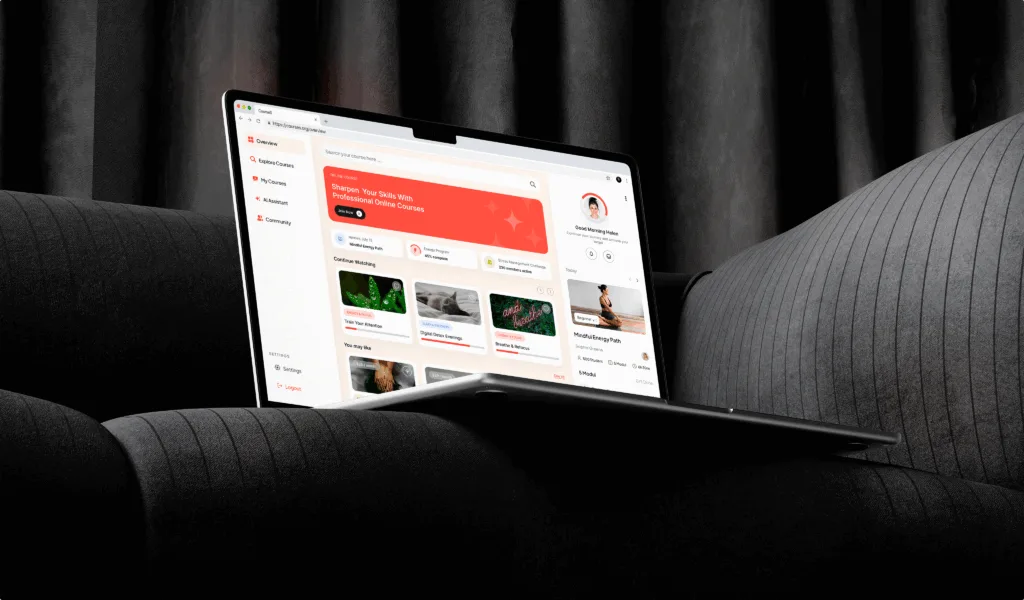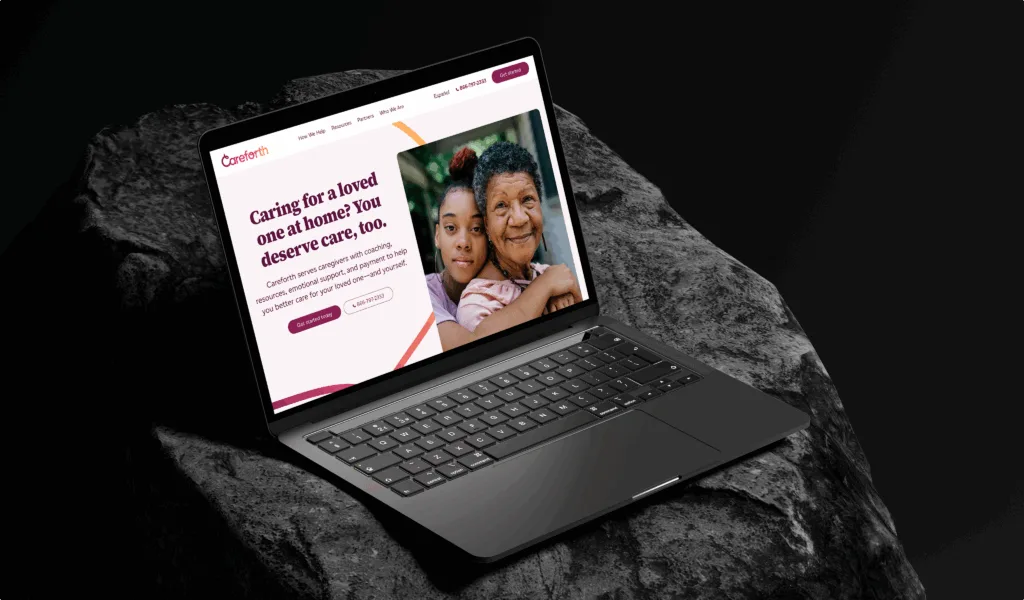We partnered with a national health and fitness organization to rebuild its digital ecosystem across web, mobile, and staff tools. The new Next.js website, powered by Sanity CMS, delivers faster performance and simpler content management. A cross-platform React Native app now supports 15,000+ weekly class registrations with real-time booking, cancellations, and reminders. For staff, a custom Electron desktop app replaced spreadsheets and email threads with structured workflows, smart routing, and gamification.
Client Profile
This US-based health and fitness organization operates a nationwide network of centers that bring together traditional fitness services with preventative care programs and community-based health education. More than just gyms, these locations act as wellness hubs, helping members stay active, learn healthy habits, and connect with others. With a strong national footprint, the organization continues to expand its impact by combining in-person experiences with digital programs and personalized coaching.
50
Locations across the United States
120
KMembers engaged in programs
3.2
MVisitors to the website each year
The Challenge
By 2024, the organization’s digital presence was falling behind both its growth and its mission. The public website, tied to an outdated CMS, was slow to update and lacked the flexibility to promote new programs or adapt to mobile use. Members booking classes had to rely on a rigid third-party tool that felt disconnected from the brand and offered no features like reminders or real-time updates. What should have been a seamless digital entry point into fitness and wellness instead created friction at every step.
Inside the branches, staff faced an equally difficult setup. Without a centralized platform, interactions with members were logged in spreadsheets or email threads. This made it impossible to see past visits, track outcomes, or coordinate across all locations. Inconsistent follow-up frustrated members, while leadership struggled to measure engagement or roll out new initiatives with confidence.
Fragmented systems
Website, booking, and staff tools worked separately, with no unified view of member activity.
Limited member experience
The third-party booking tool lacked branding, flexibility, and essential features such as reminders.
Inefficient staff processes
Spreadsheets and email chains made engagement inconsistent and coordination across locations difficult.
The Solution
Our work began with a four-week discovery phase that brought leadership, staff, and members together to define priorities across all digital touchpoints. Workshops, technical audits, and user flow mapping made it clear that the project had to address three parallel goals: create a scalable website, deliver a member-first mobile experience, and replace fragmented staff processes with a dedicated internal tool. Each stream was designed and developed in sequence but with a shared architecture, ensuring consistency across systems and a unified digital experience.
Modernizing the website with Sanity CMS
We rebuilt the marketing website on Next.js, with Sanity CMS powering structured content blocks for flexible publishing. This combination gave staff faster editing and ensured pages were optimized for SEO and mobile performance. Deployment on Vercel with CI/CD pipelines meant the team could ship updates quickly and reliably without developer bottlenecks.
Creating a mobile-first experience for members
A new cross-platform React Native app gave members a branded, mobile-first experience for class registration. The app supported schedules, real-time booking and cancellation, reminders via push notifications, and profile management. To protect accounts, we implemented biometric login and token-based authentication, ensuring both convenience and security.
32
KInstalls within the first 90 days
15
K+Weekly class registrations through the app
48
%Of registrations now completed on mobile

Digitizing staff workflows with a desktop platform
For staff, we developed an Electron-based desktop app that centralized member interactions and replaced spreadsheets and email threads. Key features included:
- Smart Routing. Assigns returning members to the same staff for continuity.
- Interaction Logging. Structured forms to standardize engagement tracking.
- Smart Suppression. Prevents redundant outreach based on prior results.
- Gamification. Points and levels to motivate staff performance.
- Kiosk Mode. A simplified view for tablets in branch locations.
With role-based access and audit logging, the system ensured accountability and consistency across 45 locations while giving leadership visibility into engagement trends.
Why these technologies
We chose Next.js and Sanity for their speed, scalability, and flexible content modeling, enabling non-technical staff to manage updates without friction. React Native provided a cost-effective way to build a native-feeling app for both iOS and Android, crucial for reaching 120,000 members nationwide. Electron was selected for the staff tool because it allowed us to build a robust, cross-platform desktop application with offline capabilities. Together with Cloudflare, Redis caching, and accessibility testing, these choices created a digital ecosystem that was secure, high-performing, and future-ready.
27
%Increase in overall class attendance after app launch
40
%Quicker website load times across devices
47
%Rise in repeat visits through Smart Routing
Results
The new digital ecosystem transformed how the organization operates across its 45 locations. The website now loads quickly, is easier for staff to maintain, and provides a reliable entry point for members exploring programs and schedules. At the same time, the mobile app gave members a seamless way to manage classes on the go, reducing missed sessions and making participation more consistent.
Behind the scenes, the staff desktop tool replaced scattered spreadsheets with structured workflows. Features such as smart routing and automated logging created continuity in member relationships, while the gamification layer encouraged task completion and boosted satisfaction. For leadership, the result was clear visibility into trends and operations across branches, providing a stronger base for planning and growth.

Faster and more reliable web presence
Load times dropped significantly, mobile responsiveness improved, and publishing became easier for staff.
Higher member participation
The mobile app simplified scheduling, reduced no-shows, and drove greater overall attendance.
More effective staff operations
Centralized tools improved coordination, increased satisfaction, and ensured consistent service across locations.
Future Collaboration
With the new ecosystem in place, the organization now has a foundation it can build on rather than patchwork systems to maintain. Our collaboration is continuing around strategic planning, ensuring the web, mobile, and staff tools evolve with member expectations and industry needs.
The next priorities include introducing premium program subscriptions through the mobile app, rolling out advanced analytics for leadership, and adding personalization features to tailor health and fitness content to different member goals. Together, these initiatives will extend the value of the digital ecosystem, turning it from a set of tools into a growth engine for both fitness services and preventative healthcare programs.
Project tech stack
Next.js
Sanity
Node.js
Vercel
React Native
Firebase
Stripe
Electron
SQLite
Redis
Cloudflare
Sentry
Lighthouse
Prometheus
DigitalOcean


